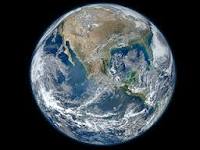Burning Fruit and the Resulting Revolutions
For years, Mohammad Bouazizi told stories of corruption at the fruit market, where police would come and take fruit without even thinking about paying for them. Police took visible pleasure in harassing these fruit vendors, often times fining them and stealing all of there products. On the morning of December 17, 2010, Bouazizi was making his way to the market so he could sell his fruits when two police officers stopped him and tried to take his fruit. One of the officers became upset about Mohammad’s uncle calling the police chief, who then called the officer and told her to let him pass. She went to the market later on that day and humiliated Mohammad; making him wear with shame. This was the beginning of the revolution. Bouazizi returned to the market later that day and told his fellow vendors that he would let the world know how unfairly Tunisians are treated, all because of President Ben Ali. Bouazizi would light himself on fire, committing suicide, a suicide which lit the whole Arab World on fire. This was the beginning of the Arab Spring.
A Fruit Sellers Legacy to the Arab World
Mohammad Bouazizi’s suicide was a symbol of the frustration and desperation felt by millions across the Arab World. One year after Mohammad’s death, three dictators were ousted from power while a fourth transferred power to a deputy. While revolutions and real change take time, Arab commentator Rami Khouri said we are witnessing the birth of Arab politics. For the first time, people in the Arab world are able to voice their opinions and create change by voting. In the first year after Mohammad’s suicide, the biggest political winners are the Muslim Brotherhood. Yet they face a substantial challenge: They have to maintain their popularity while meeting the demands of not only their supporters but the entire nation itself. However, their is also a brutal Regime in Syria that seems willing to do anything to tamp down revolutions. One year after Bouazizi set himself on fire, people in the Middle East and North Africa are not going to give up their fight for justice and dignity. One year after Bouazizi’s death, the Tunisian people are electing their first president and prime minister.
Reflection:
After previously knowing very little about the Arab uprisings or the Arab world at all, learning about the power one man had in creating change. Mohammad Bouazizi was the ultimate radical in my opinion, setting himself ablaze in the name of protest. Due to a grossly corrupt government led by Ben Ali, which focused more on foreign investment and political opposition than his people, Bouazizi took charge and led change. His suicide was a symbol of the pain inflicted on the people of not only Tunisia, but much of the Arab world. Protests began immediately in the region, and they spread like fire. I believe that Mohammad is possibly one of the most influential the world has seen in recent history, based on the tremendous size of the resulting uprisings.
